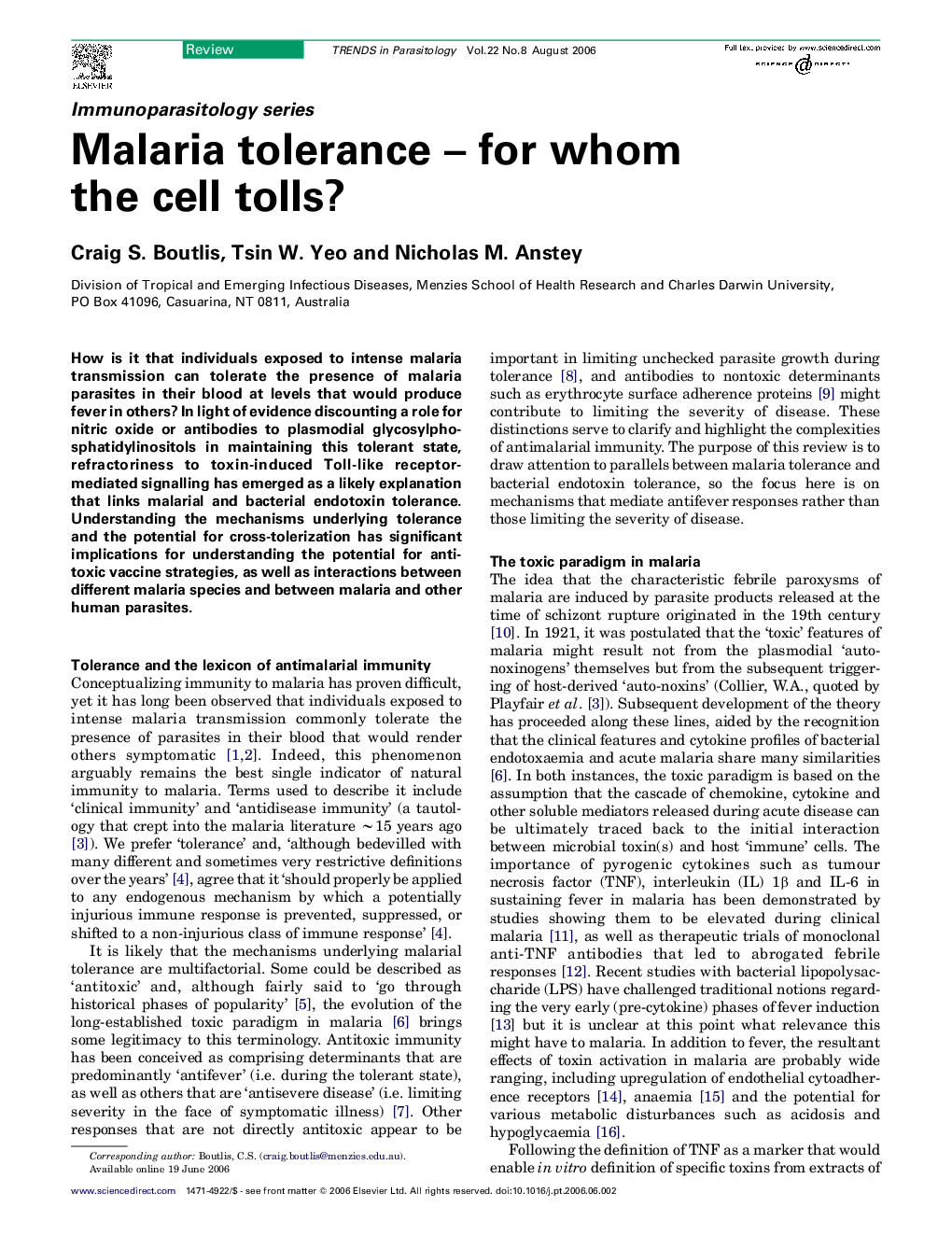| Article ID | Journal | Published Year | Pages | File Type |
|---|---|---|---|---|
| 3423796 | Trends in Parasitology | 2006 | 7 Pages |
How is it that individuals exposed to intense malaria transmission can tolerate the presence of malaria parasites in their blood at levels that would produce fever in others? In light of evidence discounting a role for nitric oxide or antibodies to plasmodial glycosylphosphatidylinositols in maintaining this tolerant state, refractoriness to toxin-induced Toll-like receptor-mediated signalling has emerged as a likely explanation that links malarial and bacterial endotoxin tolerance. Understanding the mechanisms underlying tolerance and the potential for cross-tolerization has significant implications for understanding the potential for antitoxic vaccine strategies, as well as interactions between different malaria species and between malaria and other human parasites.
